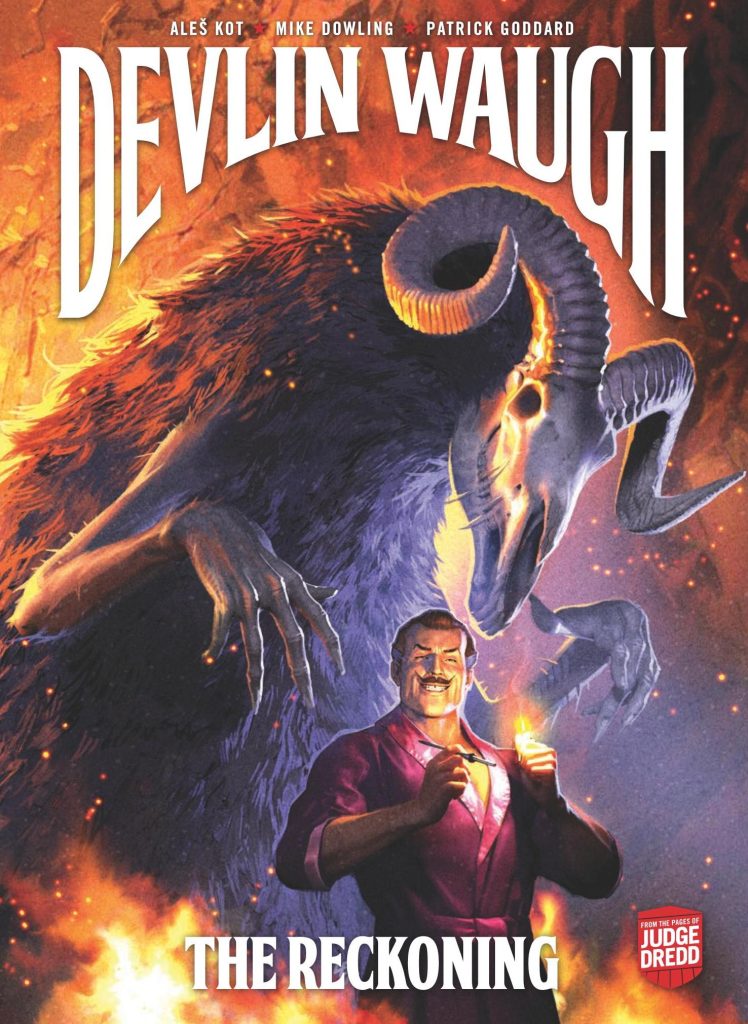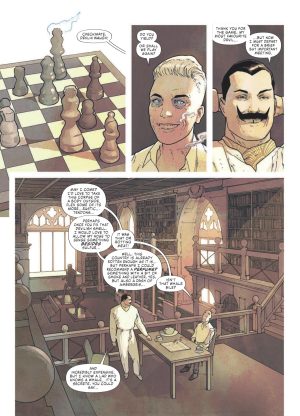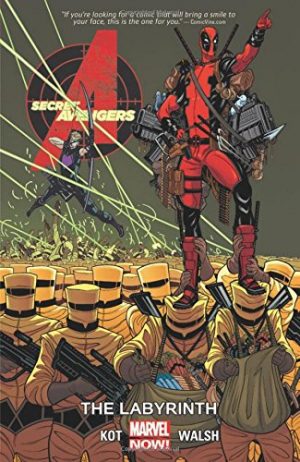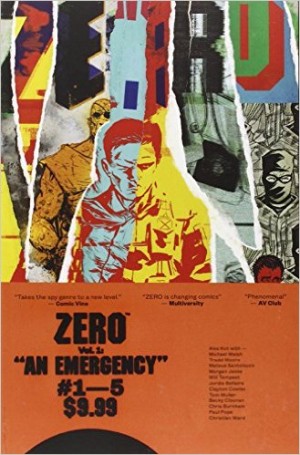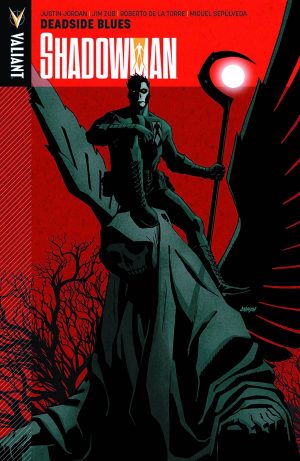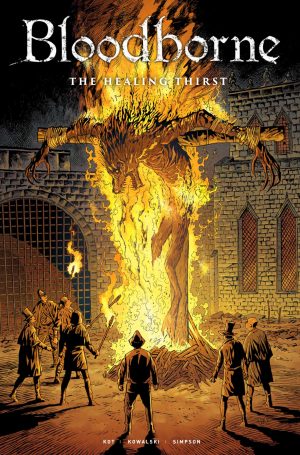Review by Ian Keogh
When Devlin Waugh was introduced in the early 1990s he was in the tradition of British music hall humour, smutty innuendo accompanied by a fine line in witty ripostes. Clever dialogue hinted at what Waugh got up to when not combating supernatural intrusions. By 2020 content of the Judge Dredd Megazine was no longer restricted in any way, allowing for a story centred on the acquisition of sperm and showing Waugh covered in it. Is this progress?
It’s an example of Aleš Kot having difficulty with the humorous aspects that have always been part of the series. His scripts are too knowing and occasionally forced. His first writing on Devlin Waugh is found in Blood Debt, where Waugh trapped a demon in a plastic dildo, subsequently given eyes and a mouth. While a demon can never be trusted, Waugh now suspects it’s not the demon it’s claiming to be, and what develops from that occupies most of The Reckoning. The demon’s personality is transferred to a human body early on, which is a relief, as the dildo joke had worn very thin. Unfortunately, though, Kot doesn’t realise this and the change is temporary.
A few standalone chapters precede the title story, the first two drawn by Patrick Goddard. Both he and the still improving Mike Dowling are excellent, confidently conveying personality and location. Although Waugh is part of Judge Dredd’s world, and there is a reminder of this, the places he visits provide no indication. They’re the rundown buildings of the 21st century dispossessed or the luxurious haunts of the elite. Dowling has a good handle on both, supplying squalor and glamour, which at its heart is the conflict exemplifying Devlin Waugh, and when a proper demon turns up it’s sinister and threatening, with the colouring of Quinton Winter very atmospheric.
As in Blood Debt, Kot can’t compress his story. It drags on and on, overthought and overwritten. Pages of a demon explaining itself don’t generate the intended pathos because it inhabits a dildo, and that doesn’t generate laughs as the novelty has long expired. All this is a pity because if accepting Waugh isn’t as witty as he previously was, Kot’s plot is founded on another long-standing characteristic, the possibility of self-delusion, and has interesting moments, at least until the step into absurdism for the conclusion. Here the throwaway inclusion of the Spanish football team is revealed as disappointingly contrived. Dowling’s art raises The Reckoning to average, but it’s really dreary in places.
